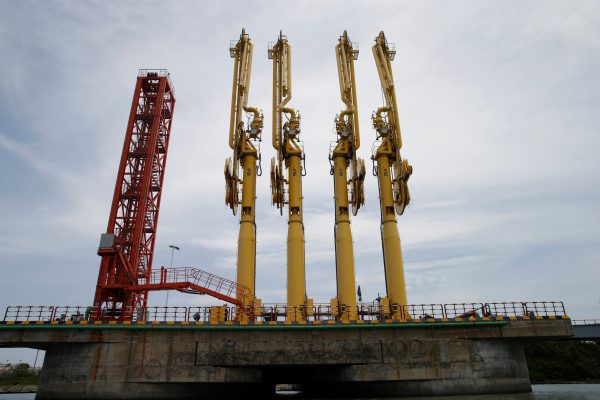This particular SEZ represents an opportunity for the National League of Democracy (NLD) government to demonstrate its commitments to democratic norms and to make it an example ‘best practice’ SEZ.
The KPSEZ was designed to take advantage of the natural deep-sea anchorage at Kyaukphyu on Ramree Island. While the current KPSEZ project is narrowly focused on three components of an industrial zone, deep-sea port and housing estate, the mega-development centred on Kyaukphyu township has a longer and more contentious history. It is associated with the Shwe Natural Gas extraction and the Made Island China–Myanmar oil and gas terminal as well as possible future road and rail link projects to China.
The KPSEZ management committee, formed by the previous government, selected China’s CITIC Group as the developer. The committee claimed that it used a transparent and participatory process in tendering, including technical support from a Singapore-based consultation firm. Despite these efforts, local objections against the KPSEZ and other controversies continue to this day. So the transparency claim about the tendering and design process is questionable.
The NLD-led government inherited these challenges from March 2016, including the management of increasingly tense and conflicted relationships between community leaders and local businesses, which have been complicated by weak public sector representation and more assertive international communities. The new government has reformed the national level governance structure of the SEZs but this has not been widely publicised and full disclosure of the content from various multi-stakeholder group consultations occurring since 2013 has not yet happened. Amid the ongoing negotiations between China and Myanmar — particularly CITIC Group and the new management committee — the KPSEZ project continues to struggle for the right approach, namely meaningful participation and adequate transparency.
Public engagement and consultation in the KPSEZ process has been through either selective invitation or restricted participation. Not surprisingly, there are now conflicting claims in relation to the adequacy of public participation over the KPSEZ. Public meetings and consultations were all controlled by Rakhine State leaders seeking to promote the development values of the project. The meetings thereby discouraged local communities to raise their concerns — many of which did not fit into the neatly defined agenda.
To overcome any perception of tokenism in such a public participation approach, consultations must be supported with strong facilitation. An open ‘town hall meeting’ style consultation would allow the free flow of ideas and reflect concerns directly from the audience, whether they be ‘ordinary’ local people, community leaders, policymakers or businesses with vested interests. Facilitations that are neutral yet inclusive and authoritative but not imposing would support these meetings by allowing various concerns to be aired. In this way, the local community would be able voice their concerns in a more meaningful way, resulting in a more inclusive governance process for the KPSEZ.
It is important that better governance is implemented. The day-to-day business operations of a SEZ, like any major business operation, benefits from the greatest possible transparency in operations. This means all dealings, regulations and communications about the KPSEZ should be publicly disclosed. A process similar to the Extractive Industries Transparency Initiative (EITI) could be formally or informally adopted by all of Myanmar’s SEZs, but it would be especially useful in the case of the KPSEZ. Another key to transparency is the full disclosure of all procedural, legal and contractual arrangements entered into, providing all interested parties equal access to all relevant information.
A specific and voluntary ‘code of conduct’, which is transparent and independently verified, is also needed for the companies investing in the KPSEZ. The first condition of this code of conduct is that those companies investing must use good labour and adhere to business operation standards. Second, the investing companies should be compelled to try to draw from local suppliers and help develop local industries. Third, the companies must conduct their operations in a culturally appropriate way.
The process of adopting the code of conduct must be participatory, consultative and transparent. Being voluntary, it will send positive signals that these investments and companies mean business and are serious about social and environmental concerns. This code of conduct would also help change local and nation-wide perspectives on foreign investment, especially from China, as well as significantly improve China’s ‘business model’ in Rakhine State.
Trevor Wilson is a Visiting Fellow in the Department of Political and Social Change and Than Tun is an Honorary Lecturer and Researcher, The Australian National University.

